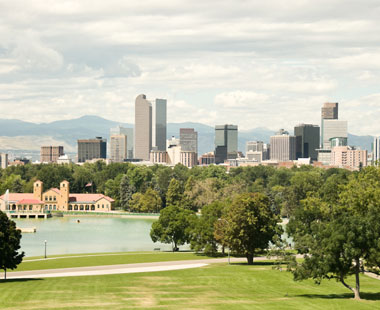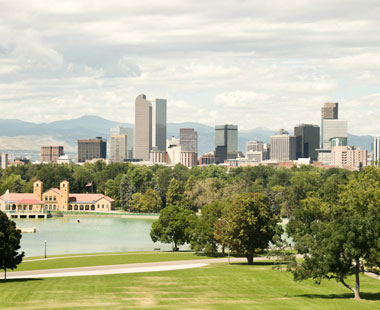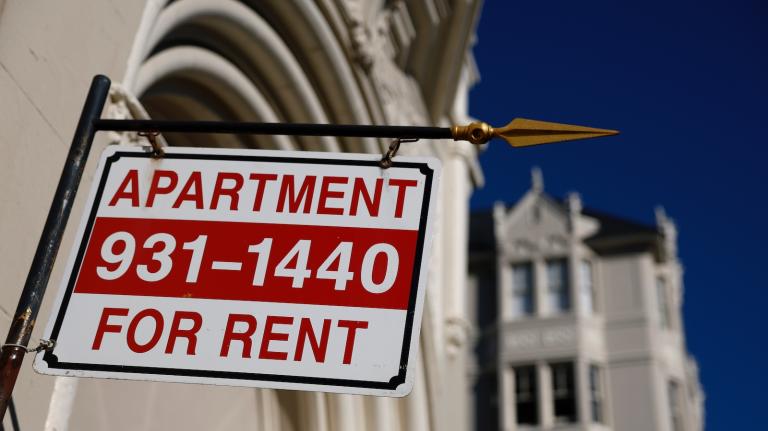 Dude, you forgot the cities — like Denver.I had plenty of complaints about Obama’s big energy security speech last week — see here and here. Most of them centered on his crassly political decision to put supply-side solutions first, despite the fact that supply is a red herring; all the serious solutions are demand-based.
Dude, you forgot the cities — like Denver.I had plenty of complaints about Obama’s big energy security speech last week — see here and here. Most of them centered on his crassly political decision to put supply-side solutions first, despite the fact that supply is a red herring; all the serious solutions are demand-based.
There’s one complaint I didn’t say much about, which I wanted to amplify: In the speech and in the accompanying materials, short shrift is given to land-use change, urban density, and transit.
For a gentle version of that critique, here’s urbanist champion Rep. Earl Blumenauer (D-Ore.):
I would suggest that we add a fifth element to this plan, which is support for livable communities that combine smart transportation alternatives, land use and design to keep communities resilient and reduce the impact of high gas prices. The Obama administration’s very own Sustainable Communities Partnership between the Environmental Protection Agency, Department of Transportation, and Department of Housing and Urban Development has provided key leadership in this area and has helped communities across the country make investments to provide transportation and housing choices that conserve oil without sacrificing economic growth. Livable, walkable communities benefit local economies, increase quality of life and enable healthy lifestyles.
Blumenauer is the chair of the Liveable Communities Task Force — worth checking out.
For, um, a less gentle critique along these lines, see the ever-irascible James Howard Kunstler:
… we are ignoring the most obvious intelligent responses to this predicament, namely, shifting our focus to walkable communities and public transit, especially rebuilding the American passenger railroad system — without which, I assure you, we will be most regrettably screwed ten years from now. Mr. Obama had one throwaway line in his speech about public transit and nothing whatever about walkable neighborhoods.
The reason for this obvious idiocy is that it’s all about the cars. That’s all we care about in the USA, the cars. We can’t get over the cars. We can’t talk about anything except how we’ll find magical new ways to run all the cars. This is a very tragic sort of stupidity and if we don’t change our thinking about it, from the highest level on down, history is going to treat us very cruelly.
As usual, I’m not sure what Kunstler thinks he’s accomplishing with the hectoring tone. It only reaches the choir.
It is not, after all, a mystery why we’re “all about the cars” — we built most of our infrastructure around them! Most Americans live in places where cars are, if not necessary, at least a huge, huge quality-of-life benefit. Yelling at them, calling them stupid, making them feel guilty about it is pointless as long as they operate in that basic incentive structure. The way to get out of the predicament is to change current infrastructure and build new infrastructure to better accommodate other modes of transportation.
Obama has taken extremely tentative steps in that direction, but what he hasn’t done is communicate the basic predicament to the public. As is his (maddening) wont, he simply accepts public opinion as it currently stands and does what he can on the margins to get good policy out of it. (That — public opinion — is why drilling played such a big role in his speech.)
Sooner or later, though, someone’s going to have to tell the American people: We built our society around oil. Oil is running out (British bank HSBC says we’ve got about 50 years). So we have to rebuild our society around using less oil. That means getting away from highways and toward dense, walkable communities where walking, biking, and transit are the default options. That’s a huge job, it’s going to take years and trillions of dollars, and we’re rapidly running out of time, so the time to start is now.
Without that basic framework, how is the public supposed to assess the confusing grab bag of energy policies that floats down to them from the political sphere?




